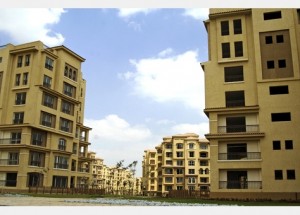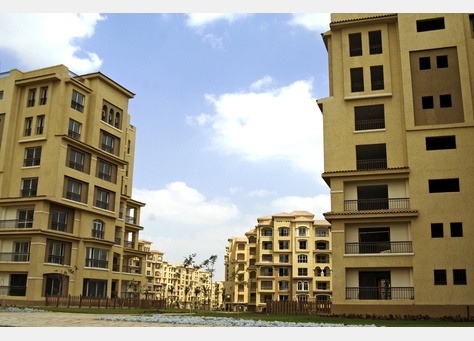
(AFP File Photo)
Despite some signs of renewed stability in 3Q 2013, political unrest remains the main challenge to the economic recovery essential for growth in the Cairo real estate market, according to a recent report by a leading real estate investment and advisory firm.
The report by Jones Land La Salle, titled “Cairo Real Estate Market Overview”, cited global research firm HIS Global Insights, which reduced its forecast of real GDP growth for 2013 from 2.7% in January to 2.1% in September.
“Debt levels have continued to increase, with Egypt currently having $45bn in foreign debt, which the interim prime minister has referred to as safe,” the report said of the country’s economic challenges. “The Central Bank estimates Egypt’s domestic debt has increased in Q3 to around $208bn.”
The report noted, however, an encouraging development in the surge of Foreign Direct Investment (FDI), which has increased to $1.074 billion in Q3, up from less than $195m in Q2 2013.
“The European Union (EU) invested a total of $955m, of which the United Kingdom contributed $586m,” the report read.
It added that this increase was the result of increased confidence of overseas investors in the interim government.
Discussing the government’s economic plans, the report said that 25% of the revenue from the new real estate tax plans – which will expand beyond residential to include the industrial and hospitality sectors – will be used for urban renovation projects. An additional 25% are to be allocated for the improvement and development of slum areas.
“The government continues to support the expansion of the industrial sector of the economy, providing $428m to investors to develop industrial projects across 36 regions,” the report said.
The report also discussed the latest real estate developments referring to the New Urban Communities Authority project to implement a $2.85bn project to build 1 million homes on 250,000 land plots.
The prices of these apartments will be between EGP 250 and 350 per square metre, which it said is significantly lower than other social housing units available at the moment.
Earlier this week, Gleeds Construction Consultancy Egypt (GCCE) said in its quarterly study that political instability after 30 June had had a minimal negative impact on the construction sector in the country, adding that this impact was “not as significant as the period following the 2011 civil unrest.”
Gleeds’ study said that during the period from July to September, the price of construction materials remained relatively constant, which indicates that the majority of suppliers and specialist contractors appear to be holding their prices to protect their market shares and profit margins.
In a recent report issued by the Ministry of Planning, the construction, real estate, communication, business and finance and insurance sectors achieved the highest growth rates in 4Q FY 2012/2013.




